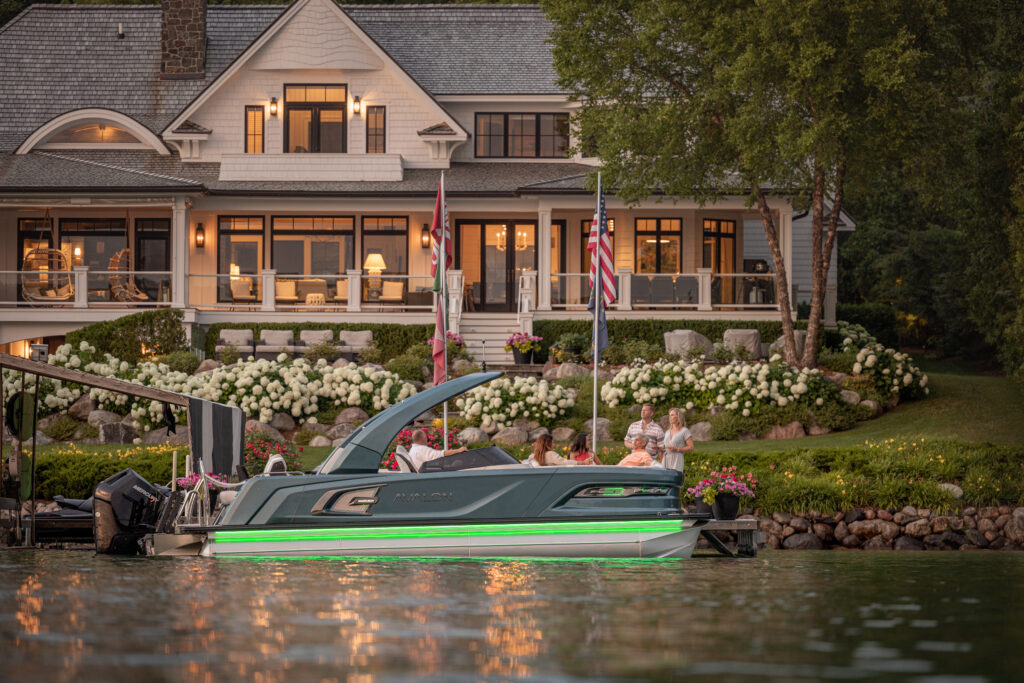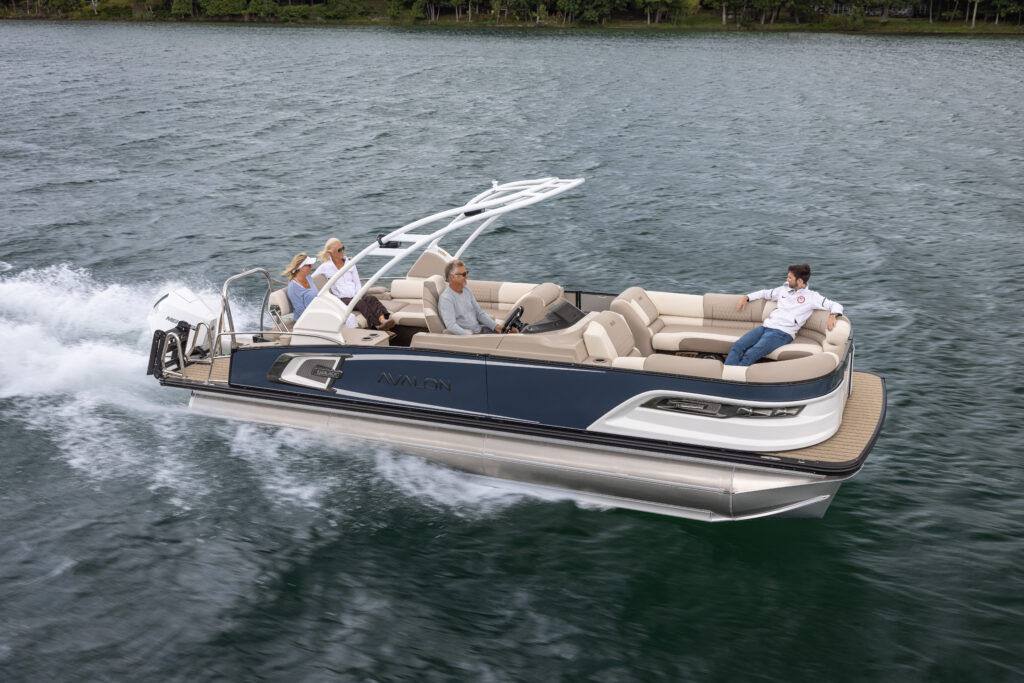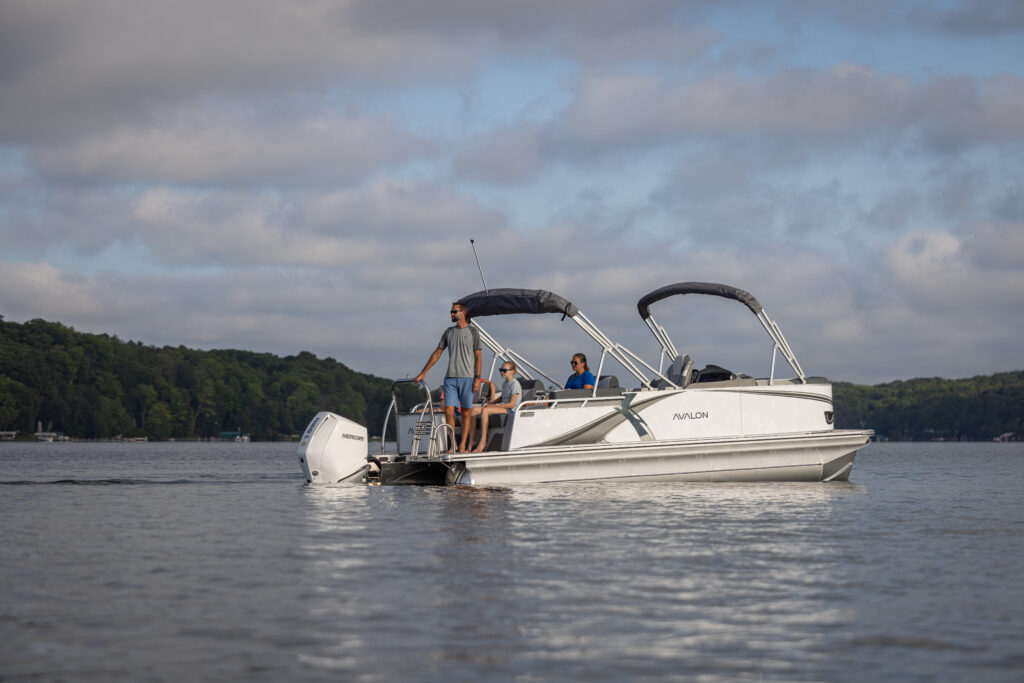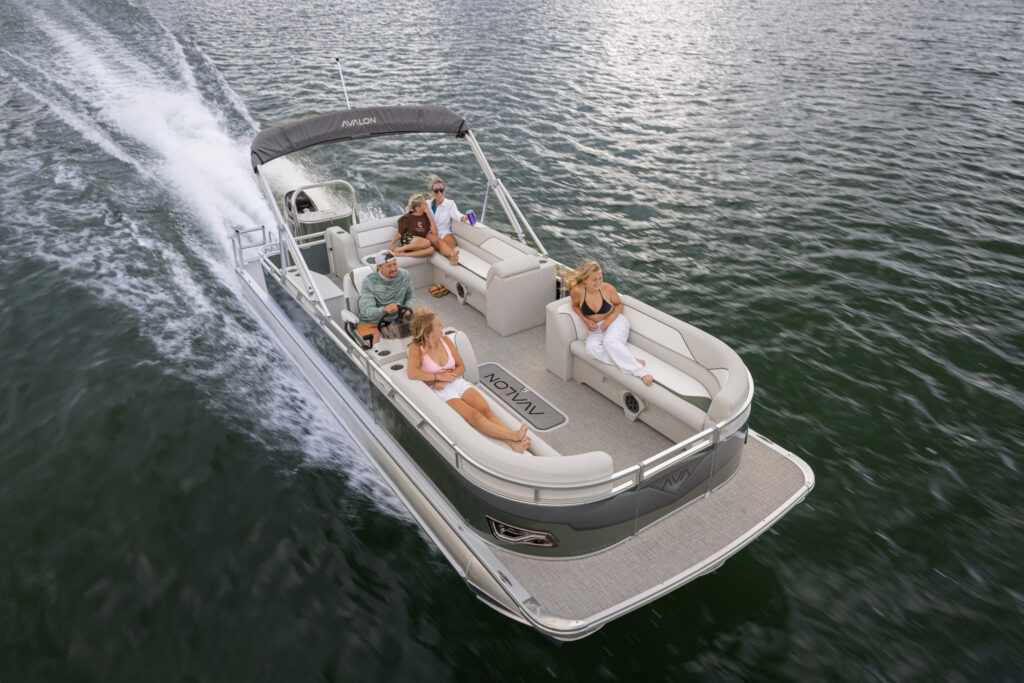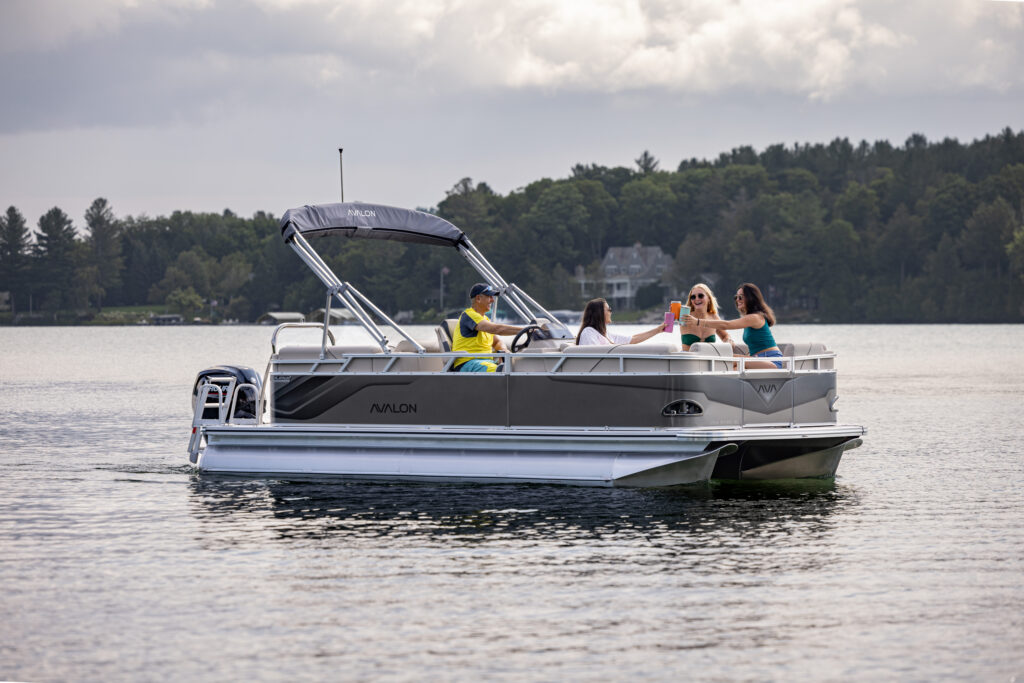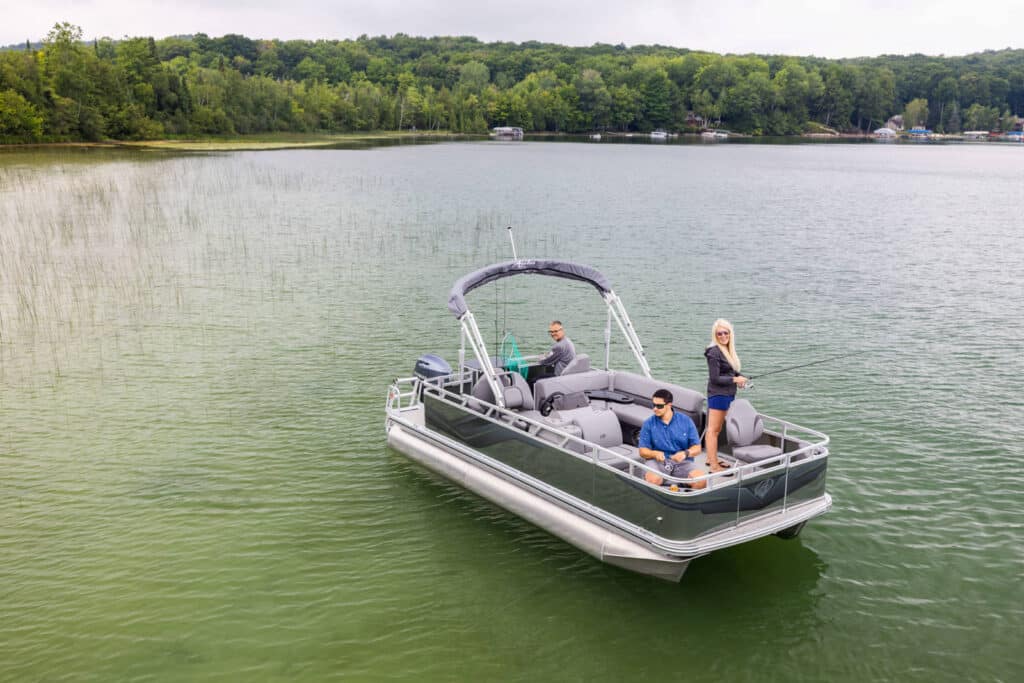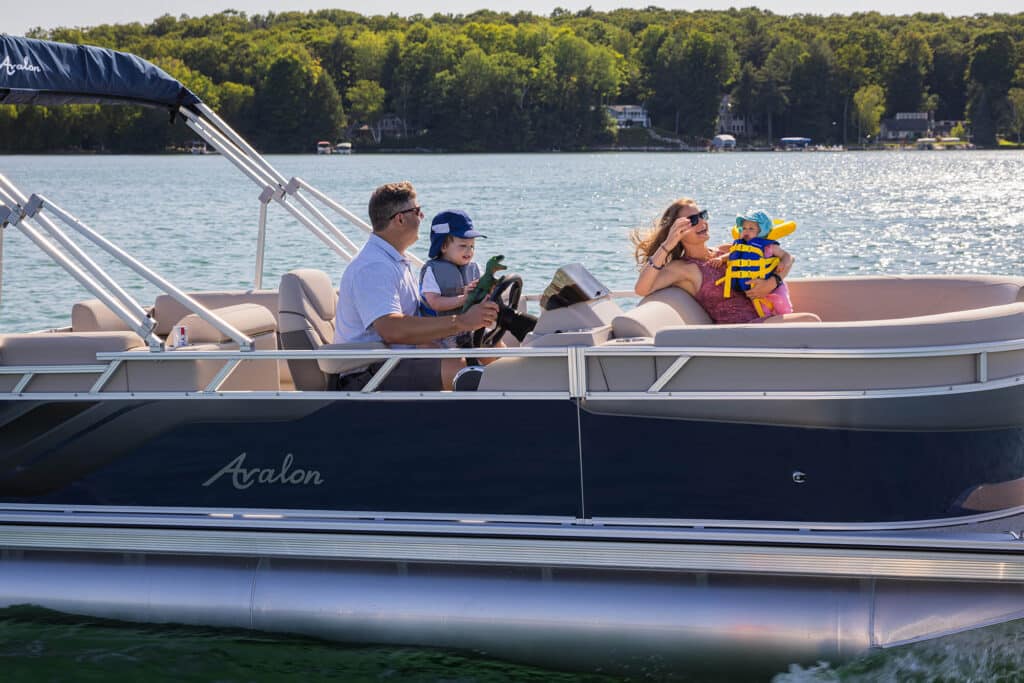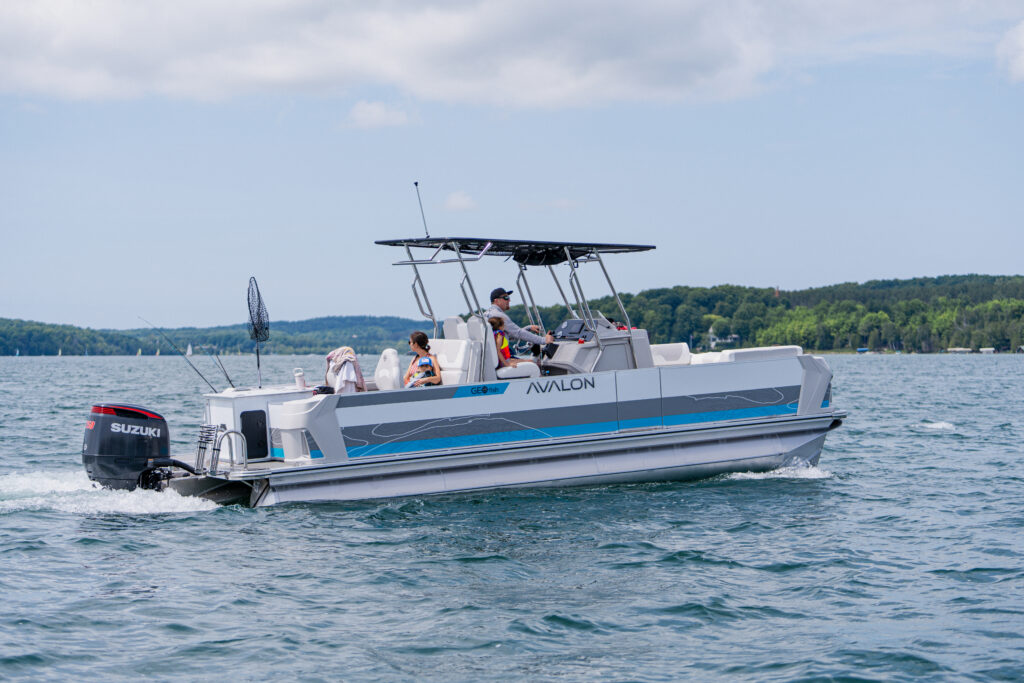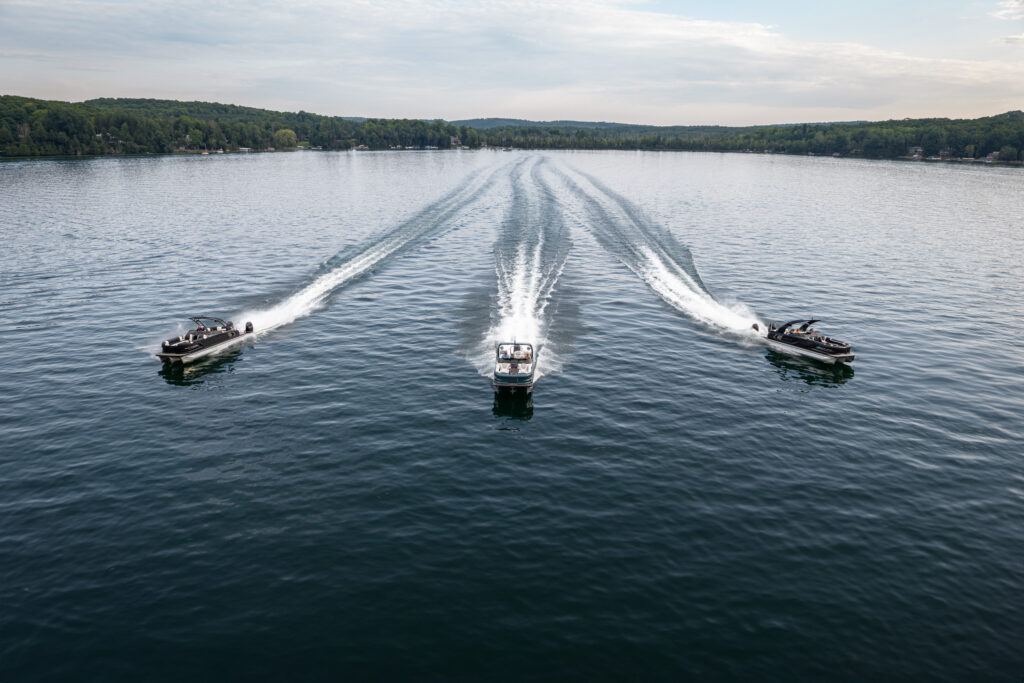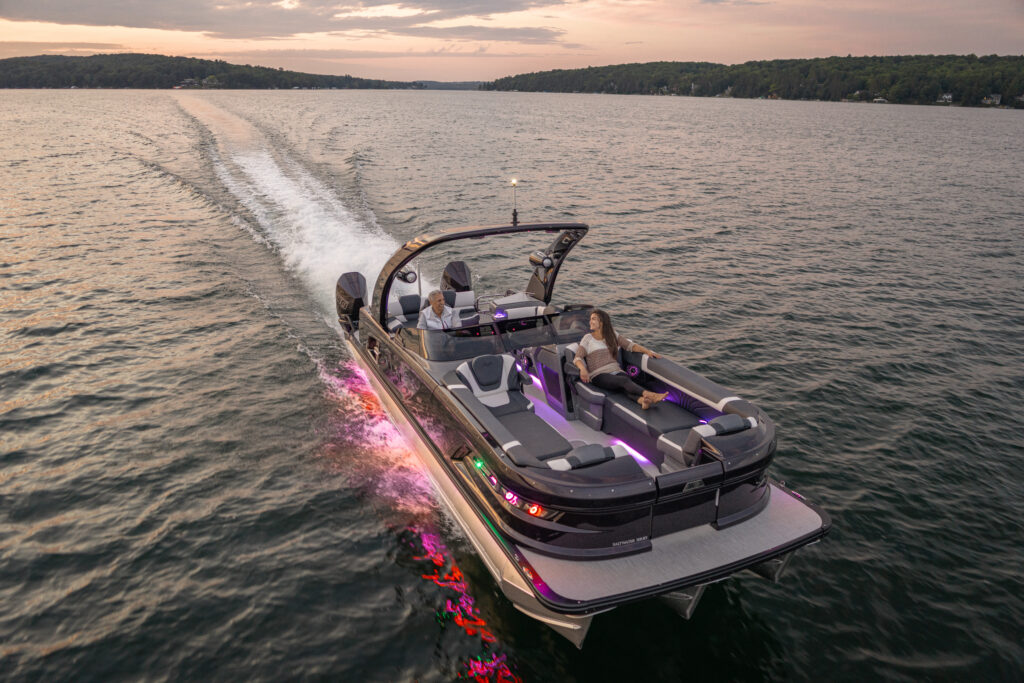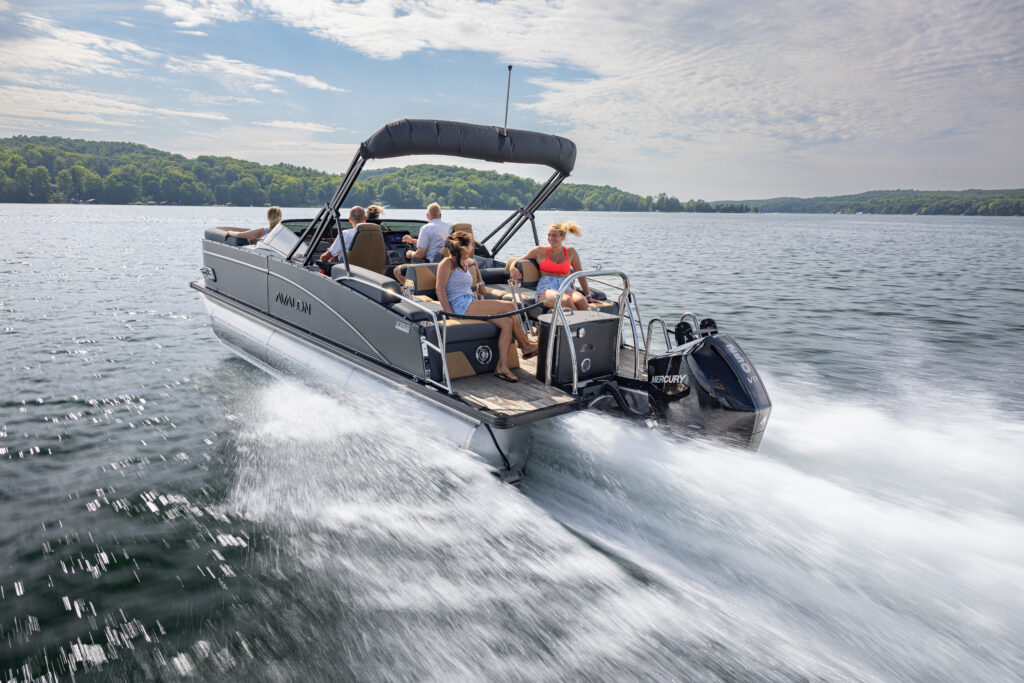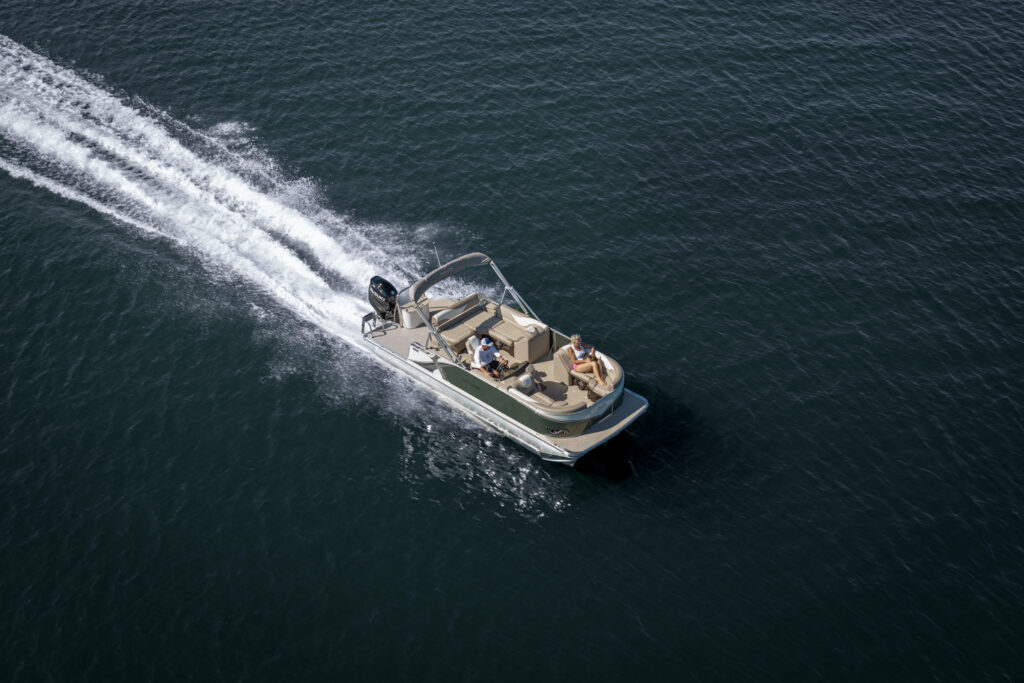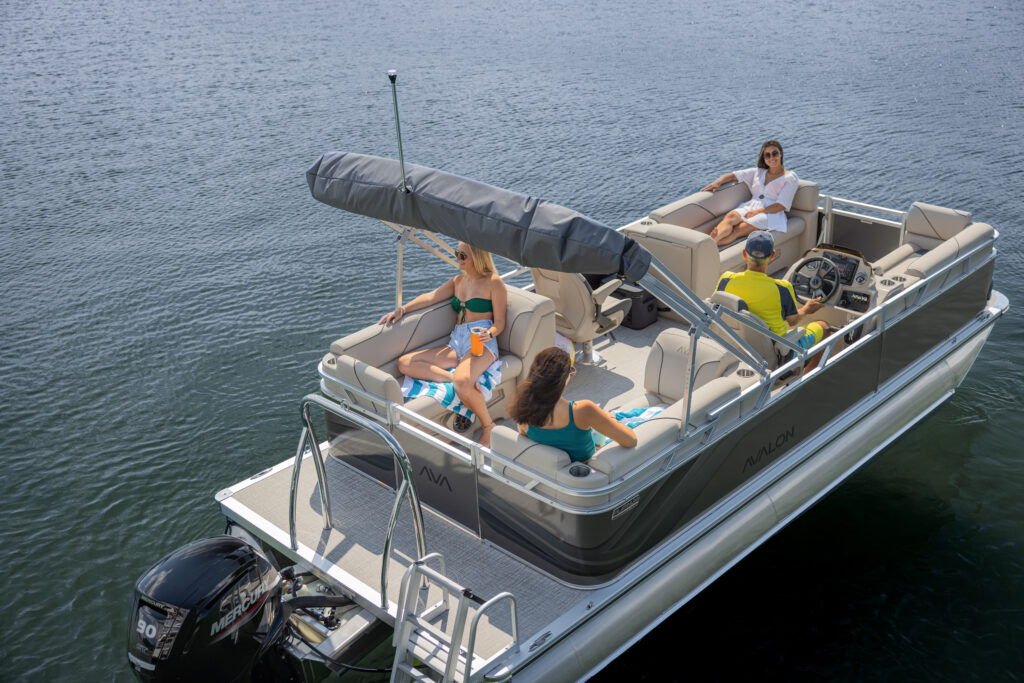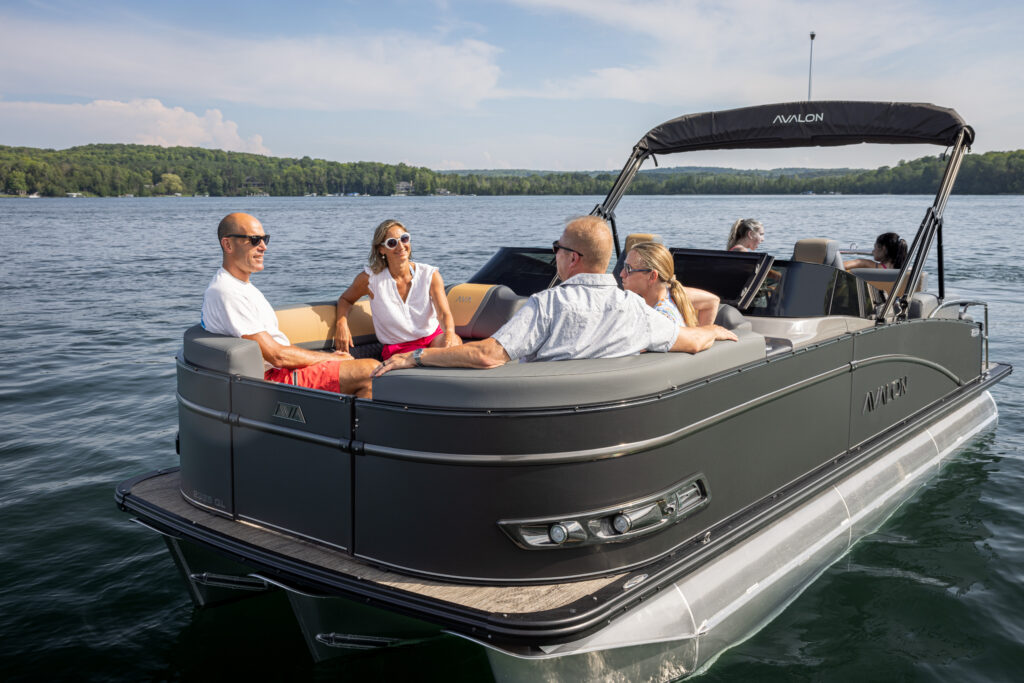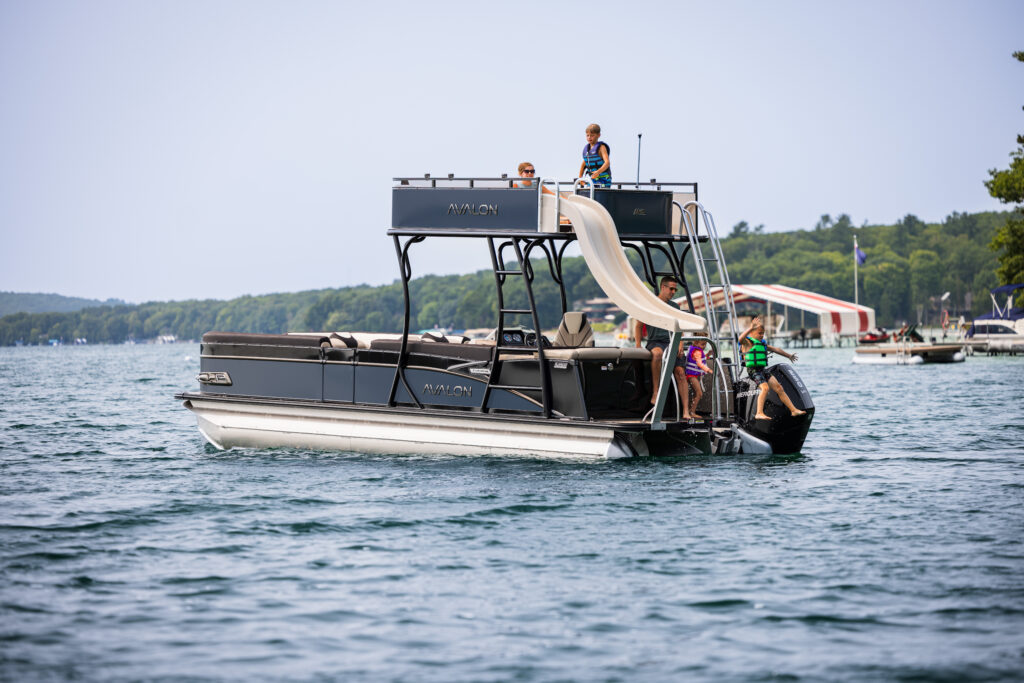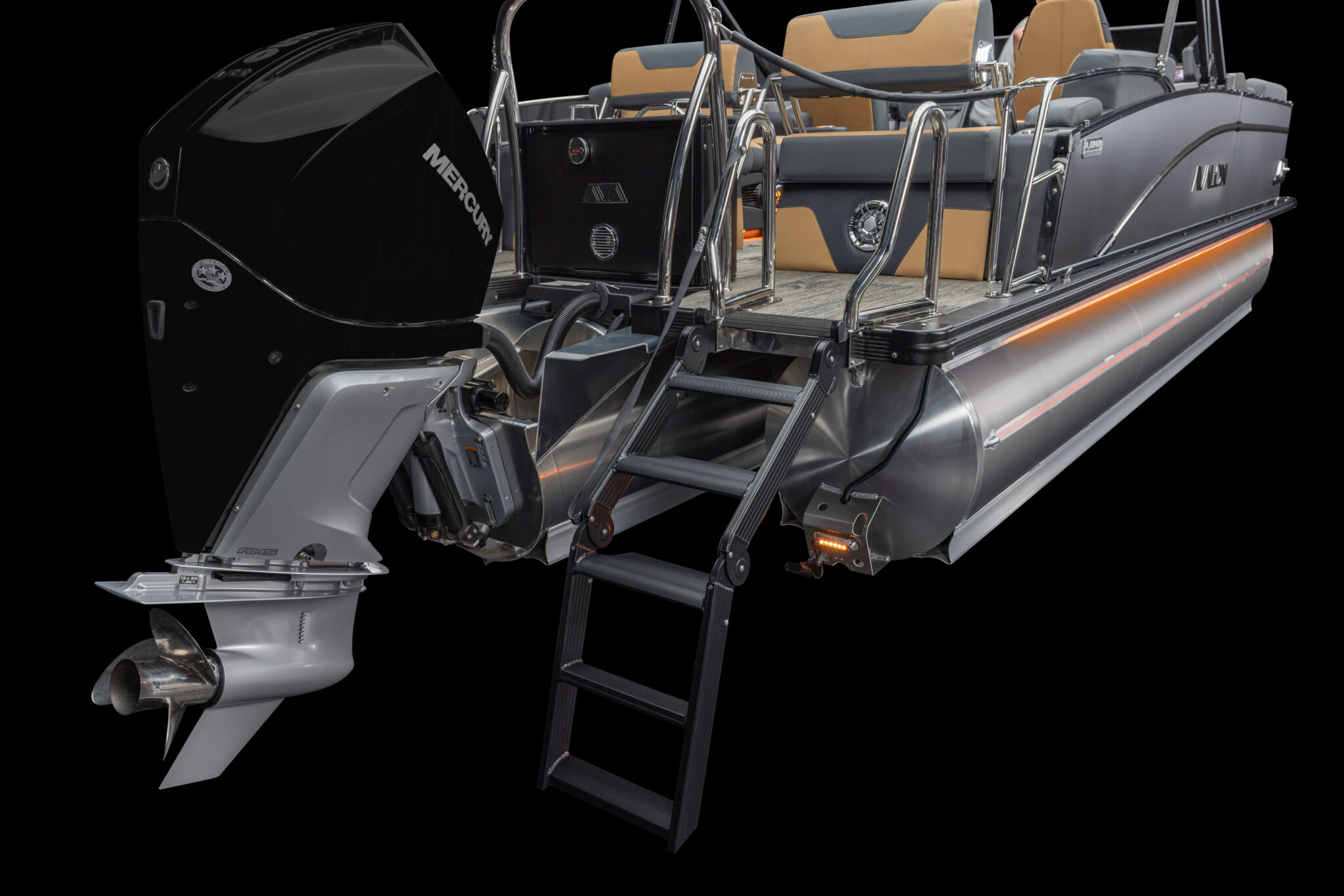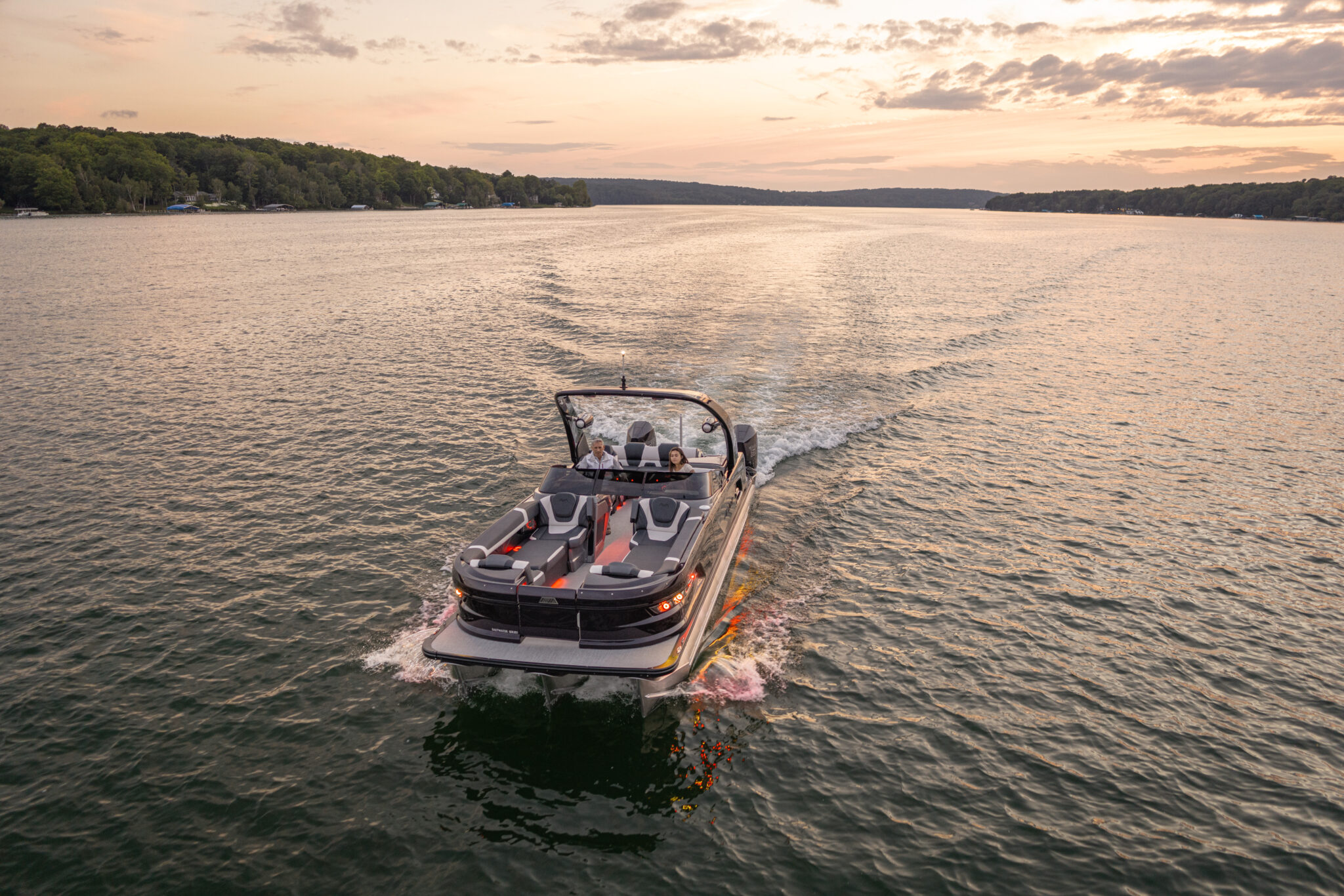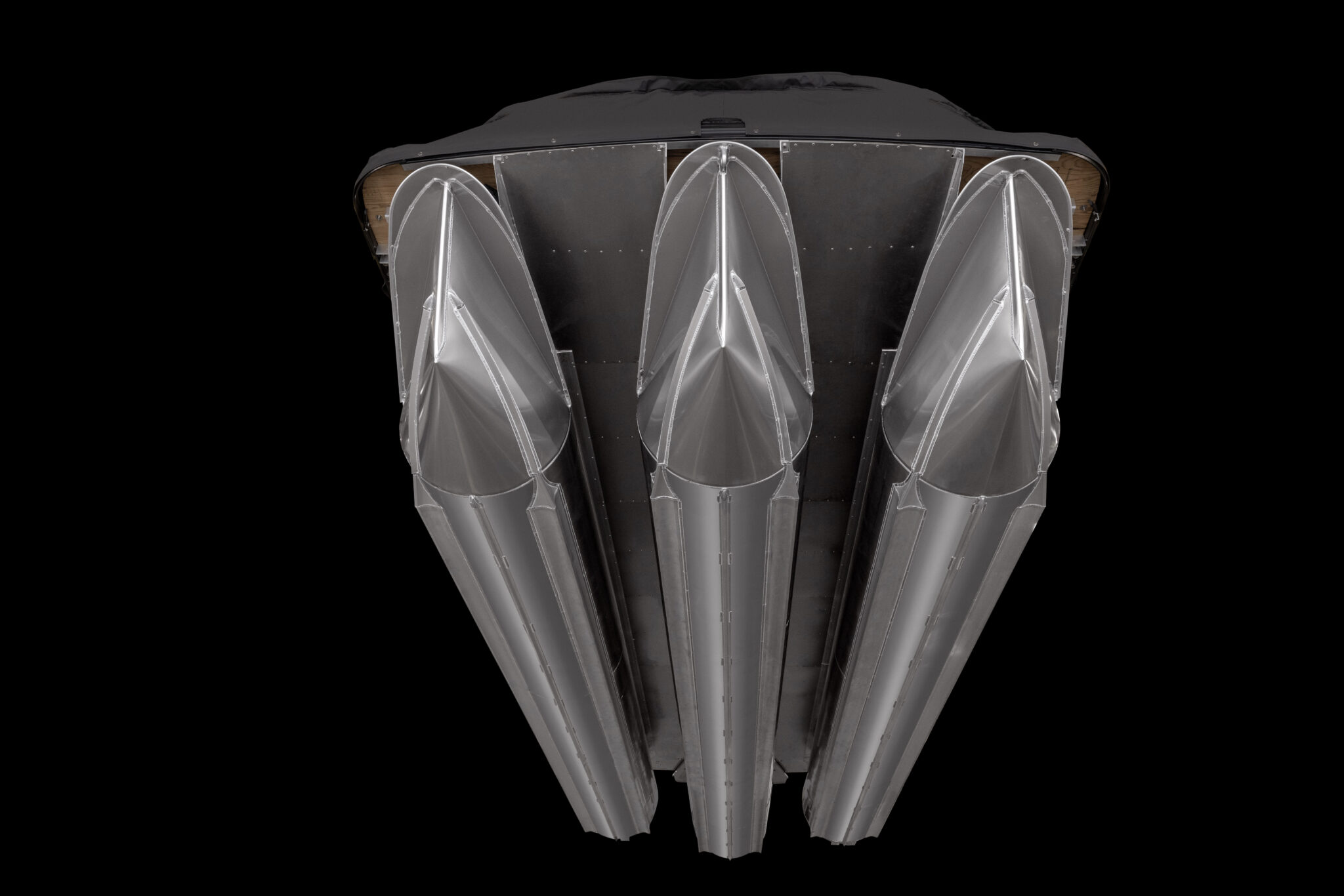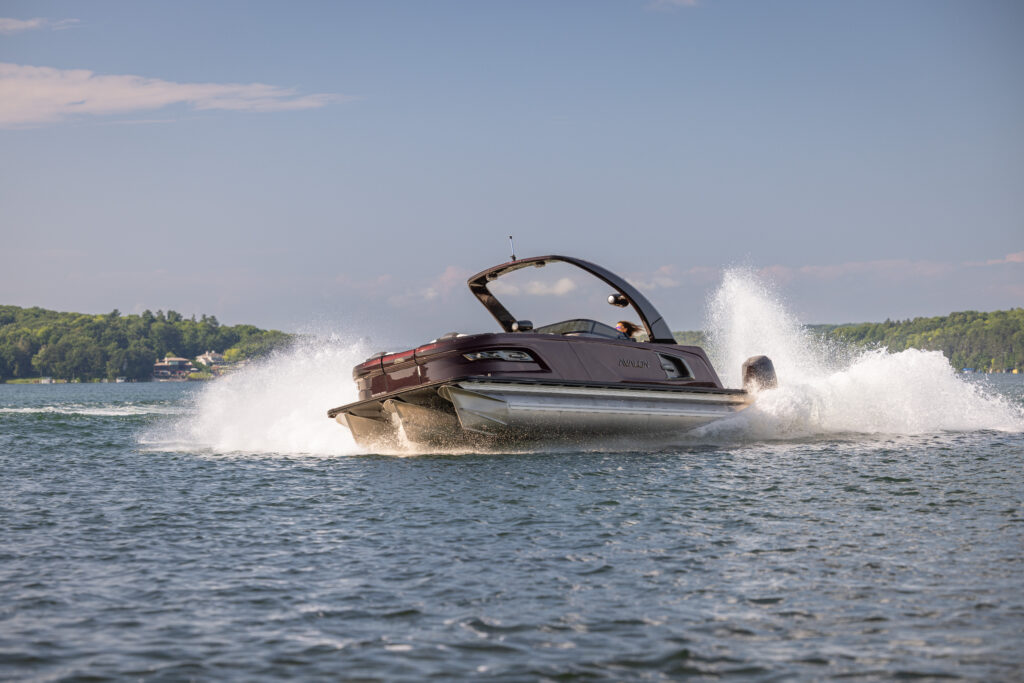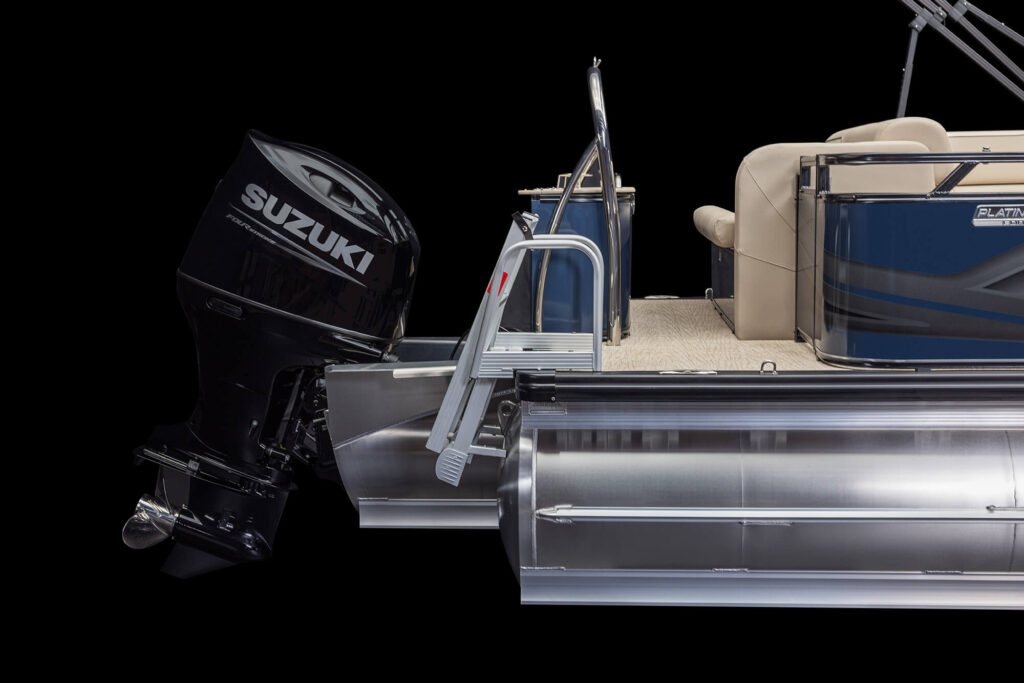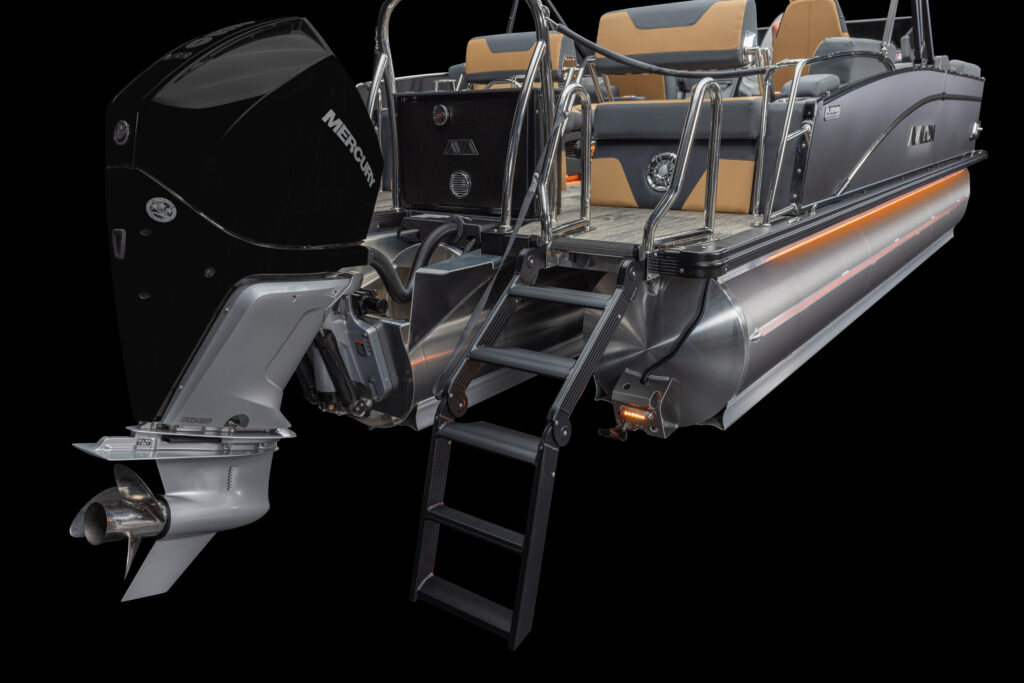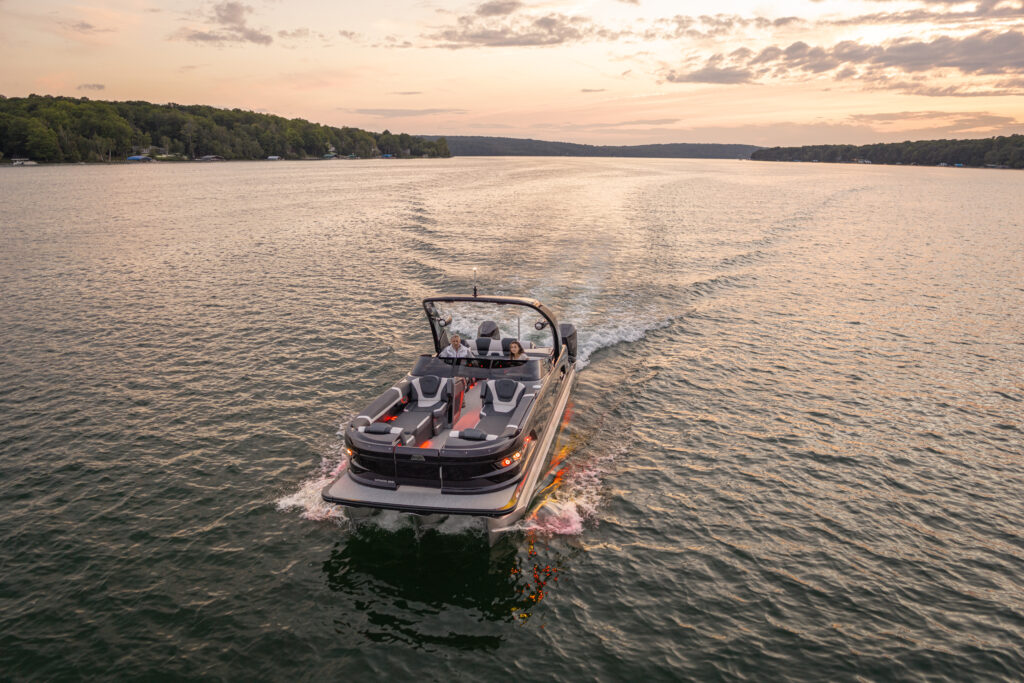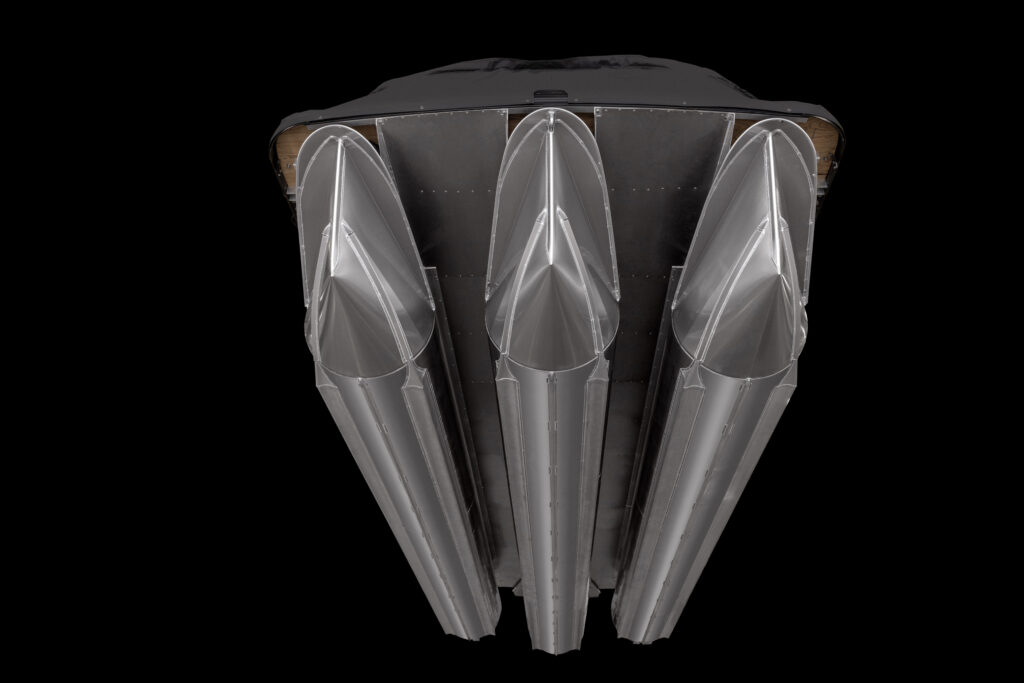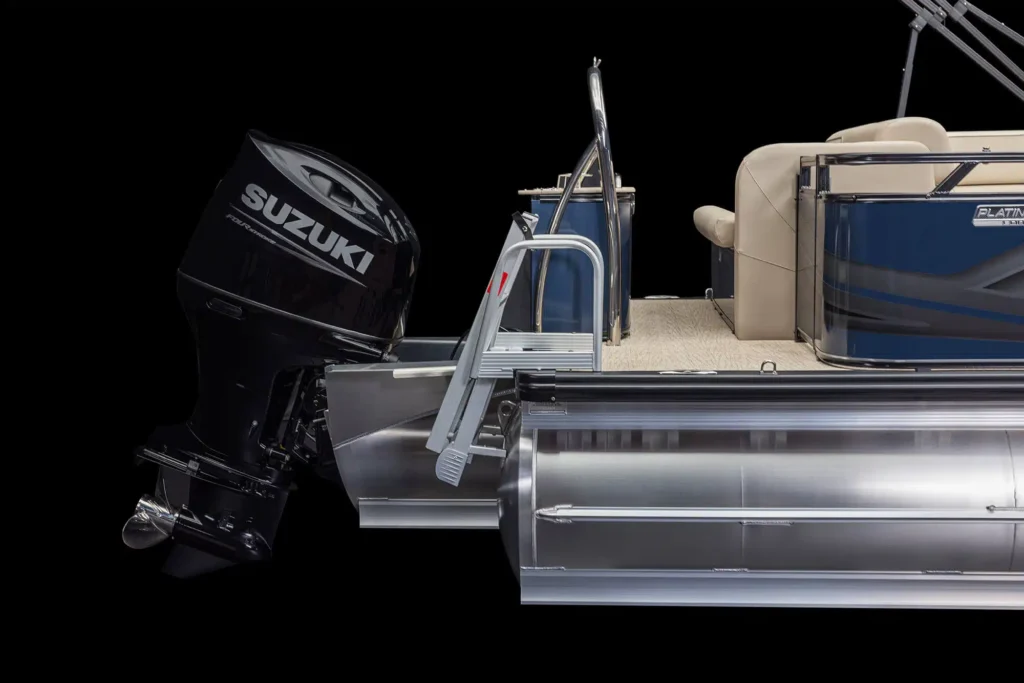When purchasing a pontoon boat – whether it’s your first vessel or the next in an ever-expanding fleet – one of the biggest considerations is your boat’s external material. Should you choose a sporty fiberglass hull or opt for a classic aluminum-sided model?
Each material has its own set of draws and drawbacks, so it’s helpful to figure out what you want out of your cruising experience before hitting the docks to find your perfect boat.
Fiberglass vs. Aluminum Pontoon Boat: An Overview
Fiberglass is a type of plastic made from epoxy or resin and reinforced with glass fibers. Aluminum is a lightweight metal used in various types of manufacturing.
The fundamental differences between the two are that fiberglass boats are heavier, more expensive, and more resistant to dents, while aluminum boats are cheaper, faster, and easier to maintain. They also look dissimilar, with fiberglass boats typically being built along sportier lines than aluminum ones.
Boats made of either material will offer a stable and comfortable cruising experience and provide you and your family with endless hours of summer fun out on the water.
To help you decide whether a fiberglass vs. aluminum pontoon boat is best for you, let’s go into greater detail about the differences between each boat type.
Four Essential Differences
These are the primary ways in which aluminum and fiberglass pontoon boats differ.
1. Price Point
Fiberglass pontoon boats are less common than their aluminum cousins and tend to be significantly more expensive. This is because fiberglass models are typically top-of-the-line vessels and as such are manufactured with higher-end components and luxury features.
Aluminum pontoons vary widely in price, but on the whole, you can expect to pay thousands of less for an aluminum boat, making them a wise choice for the budget-conscious skipper.
2. Weight
The most crucial difference you’ll see in a fiberglass vs. aluminum pontoon boat in terms of performance has to do with weight. Fiberglass is heavier than aluminum, so if you’re comparing fiberglass and aluminum boats with the same engine, the aluminum boat will be faster and more fuel-efficient.
Some manufacturers offer fiberglass boats equipped with dual engines to counteract the speed issue. Of course, opting for a dual-engine model will catapult your purchase into a significantly higher price point, so it all depends on matching your needs with your budget.
Weight also plays a role in the stability of the vessel. As the heavier model, fiberglass boats offer a smoother ride.
Finally, weight affects the carrying capacity of each boat. Due to its lighter siding, an aluminum boat can carry more passengers than a fiberglass vessel of a similar size and floorplan.
3. Maintenance
Boats are a long-term and even lifelong investment, so it’s essential to have a detailed understanding of your vessel’s maintenance needs. Upkeep and durability constitute another key area in which aluminum and fiberglass boats differ.
Fiberglass vessels are more resistant to dents than their aluminum counterparts and can be power-washed safely, meaning their day-to-day upkeep is easier. However, damaged fiberglass is tricky and expensive to restore, so repairs may be costly and time-consuming.
By contrast, aluminum picks up dings and scratches over time because it’s relatively malleable, and aluminum pontoon boats should be scrubbed by hand rather than power-washed to avoid creating dents or stripping the paint. On the other hand, repairing aluminum boats is relatively easy and affordable; all you have to do is replace the damaged panel, and you’re good to go.
4. Style
Finally, these two vessel types differ broadly in terms of style and appearance. Most fiberglass pontoon boats are sporty and stylish, with a shiny gel coat that glints in the sun and catches the eye. Aluminum boats have a more modest profile, but some captains prefer their classic, traditional aesthetic.
Key Similarities
No matter what material they’re made of, pontoons of all shapes and sizes offer a stable, reliable platform that’s ideal for fishing, sunbathing, and cruising around with friends and family on your favorite lake. They all have a relatively similar structure and are built for entertainment and recreation rather than speed.
It’s worth noting that despite being a plastic compound, there’s no evidence at this time to suggest fiberglass has any carcinogenic properties, meaning your family won’t be exposed to more toxins in a fiberglass vs. aluminum pontoon boat. As long as they’re made by responsible manufacturers, vessels of both materials are safe.
Finally, despite popular misconceptions, both types of pontoon boats perform well in salt water.
Our Takeaway
With unmatched stability and room for entertainment, while still boasting enough power to facilitate water sports, pontoon boats are the ideal recreational vessels. No matter which material you choose, your new boat will provide you and your family and friends with hours and hours of priceless memories on the water.

